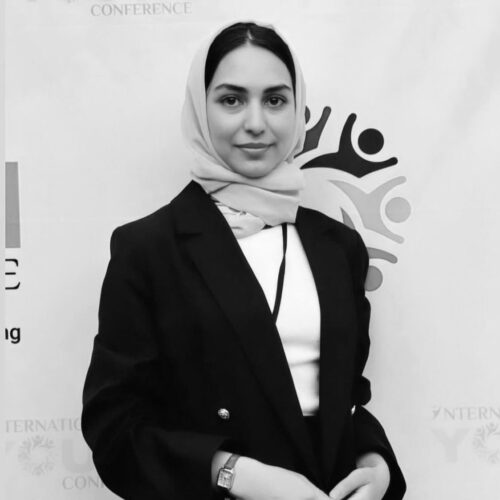
Zhamana Hakim
Zhamana is a political science and global affairs student who is driven by the belief that education is a powerful force for change in conflict affected regions, after her experience growing up in a war zone and fleeing Afghanistan. Since the age of 13 she’s advocated for women’s rights, refugee rights, and youth empowerment, leading multiple projects focused on increasing access to education for marginalised groups. Zhamana now runs an online school which provides education to over 400 young girls in Afghanistan, utilising non-traditional methods to ensure their learning continues despite restrictions. Through journalism, she wants to shed light on the struggles of Afghan women, especially those living under Taliban rule, and to encourage global leaders to take meaningful action.
“Working on this story deeply resonates with me because it reflects my own journey and the journeys of countless Afghan women who have faced unimaginable hardships but continue to rise with unbreakable strength. As a refugee myself, I understand the fear, the isolation, and the overwhelming challenges of starting over in a new country, especially as a young woman striving for education and independence.
This issue matters not only to me but to my community and the world, because education is the key that unlocks opportunity, dignity and hope. For many refugee women and girls, access to education is a distant dream, blocked by war, discrimination and displacement. Yet education transforms lives; it empowers individuals to rebuild, to provide and to inspire others.
I hope that once people read this story, they will recognise the urgent need to support refugee education, particularly for young women and girls who face even greater barriers. I want readers to feel inspired by the resilience and determination of women like Amina and countless others, and to be motivated to advocate for policies, programmes and funding that open doors to education for refugees worldwide. I hope this story sparks understanding and action, reminding us all that investing in education for displaced women is investing in a more just, hopeful and inclusive future for our global community.“